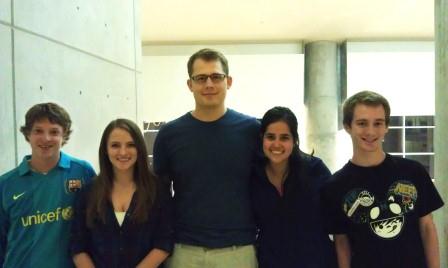Optimizing derivation, expansion and differentiation of suspension reprogrammed stem cell cultures
Project Overview
Reprogramming adult cells into induced pluripotent stem cells (iPSCs), as well as their subsequent expansion and differentiation, is normally completed in adherent cell cultures. Recently, it has been proven that iPSCs can be derived and expanded in suspension cultures using a stirred suspension bioreactor. These reactors establish stable cell culture conditions by controlling the temperature as well as the level of nutrients (media), CO2 (pH), O2, and other soluble factors. The suspension components are uniformly distributed within the reactor fluid through various mixing techniques, most commonly an impeller. The process of adult cell reprogramming and iPSC expansion and differentiation can be scaled up and automated using bioreactor stirred suspension cultures.
Dr. Saha has asked our team to design a bioreactor that maximizes the production of neural progenitor cells from mouse embryonic fibroblasts in stirred suspension cultures. The project involves designing culture processes and optimizing culture conditions to reprogram adult cells to induced pluripotent stem cells (iPSCs) and differentiate those iPSCs to neural progenitors.
Team Picture

Files
- Product Design Specifications (September 21, 2012)
- Final Report (December 12, 2012)
- PDS 10/15/12 (October 15, 2012)
- Mid-Semester Report (October 24, 2012)
- Final Poster (December 12, 2012)
Contact Information
Team Members
- Jeff Groskopf - Co-Team Leader
- Tyler Klann - Co-Team Leader
- Ian Linsmeier - Communicator
- Lisa Kohli - BSAC
- Maria Estevez Silva - BWIG
Advisor and Client
- Prof. Tracy Jane Puccinelli - Advisor
- Dr. Kris Saha - Client
Related Projects
- Spring 2013: Optimizing derivation, expansion and differentiation of suspension reprogrammed stem cell cultures
- Fall 2012: Optimizing derivation, expansion and differentiation of suspension reprogrammed stem cell cultures
